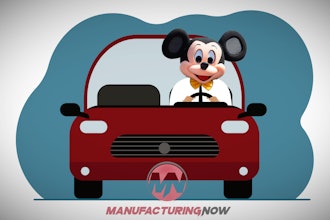It’s the phone call nobody wants to receive, but it’s exactly what Steve Quandt, executive vice president of Columbus Chemical Industries (CCI), was faced with a few months back when parts of CCI literally went up in flames.
“It was a scary night,” says Quandt, of the blaze that broke out around 8 pm back in May at the chemical distributor’s Columbus, WI facility. “We have a lot of inventory; there were well over 1,000 chemicals involved in that fire. Those of us who work here thought we’d lost it all.”
Disaster Recovery
CCI was initially started as a reagent chemical packaging company by the Sheard brothers, of whom Richard Sheard is still involved as chairman. This company evolved over the years from packaging chemicals for children’s chemistry sets to what it is today—a family-owned chemical distribution company that serves as a cornerstone for a small Midwestern community. Despite its legacy, from an outside perspective, a fire in a chemical distribution center sounds like something of a death sentence for a small business: How does a company recover physical assets, customer relationships, and perhaps most importantly, the trust of the community? According to Quandt, much of this recovery was guided by a bundle of papers called the “Disaster Recovery Plan”—one of those preventive measures where the true value isn’t fully understood until you have to use it. In large part it was this DRP that allowed CCI to be back up and running within 12 days of the fire.
“The DRP deals with all kinds of disasters. The fire was at the top of the list, but also: What happens if you have a tornado, or a big spill, or lose power for a significant period of time?” Quandt says. “It covers all of those ‘what ifs’ in great detail, to the point where it explains who you call, what you say, and how you deal with the issue.”
In addition to who to call, CCI knew what to do once those calls were made. “The right people were on the scene; our people and the state and federal response squads. They were on-site during the fire, actually doing run-off and air monitoring in addition to what the EPA was doing,” he says. “When we demonstrated to them that the equipment we were using to measure the impact on the environment was equal to, and in some cases, more sophisticated than what they were using, they had complete faith in us that we could handle the issue.” This, among other steps, would serve as a critical factor in allowing CCI to get back into their own facility in an expedient manner.
|
The MEP Connection During its ISO certification process, CCI relied on help from the local MEP (Manufacturing Extension Partnership). Managed by NIST (National Institute of Standards and Technology), MEP is a national network with hundreds of specialists who understand the needs of manufacturers. For the past 20 years, they have worked with thousands of manufacturers delivering $1.44 billion in cost savings annually and $10.5 billion in increased or retained sales in one year. MEP provides companies with services and access to public and private resources that enhance growth, improve productivity, and expand capacity. The organization works with companies willing to invest in their future, to make improvements in the short term, and position themselves to be stronger long-term competitors both domestically and internationally. MEP provides its manufacturing customers with a wide array of fundamental services in business and process improvements helping them to stay strong and ready to compete in the global market, as well as by making advanced technology adoption a reality for any-sized business. Growing from a pilot project of three centers to national coverage through 59 affiliated organizations, MEP’s range of services provided by these organizations, and their partners, is also growing:
For more information, visit www.mep.nist.gov. |
Alliance With NACD
While Quandt would stress the Disaster Recovery Plan as critical to CCI’s survival, there were other preventive efforts which helped the company best address the disaster issues and quickly resurrect their operations.
One, says Quandt, is CCI’s affiliation with the National Association of Chemical Distributors (NACD), an organization for which Quandt now serves as chairman. CCI joined NACD nearly 20 years ago, in order to “learn about the industry and responsibilities we had as a chemical distributor,” he says. Around the time CCI joined, NACD was developing a program called the “Responsible Distribution Process” (RDP), without which, Quandt says, “We wouldn’t be in business today.”
RDP is a health, safety, and environmental initiative designed much like Responsible Care—the chemical industry’s global voluntary initiative under which companies, through their national associations, work together to continuously improve their health, safety, and environmental performance, and to communicate with stakeholders about their products and processes—except RDP is targeted towards chemical distributors versus chemical manufacturers.
The difference, says Quandt, is a producer might make 10 or 20 chemicals, whereas a distributor the likes of CCI would be contending with chemicals in-house that number in the thousands. This creates an entirely different set of variables when dealing with a disaster situation of this magnitude. CCI was in the first class of graduates of the RDP program after its inception in 1991, and hasn't looked back.
Earning Back The Trust
Another major issue where the Responsible Distribution Process was able to assist CCI was in its relationship to the surrounding community, and how best to manage fears and expectations for a chemical company. “Your neighbors don’t want you there. They don’t want you on their roads, their highways, their waterways; they don’t want you in their air. You have to earn your right to operate. The only way you’re going to earn your right to operate is through something like the RDP, where you are third party audited,” he explains. “Somebody else comes in and says that you’re a responsible party. We’ve done that for 15 years. When you have an incident like we had, you lose control. The first responders take control immediately. They decide who goes where and when. I didn’t get anywhere near this facility until day seven.
“The general public has an absolute fear of chemicals; they don’t have an appreciation for them, and they think of chemicals as being terrible. The reality is that without chemicals, what we enjoy today—clean drinking water for example—we wouldn’t have. How do you tell people that you need chlorine in the drinking water when they also know that inhaling chlorine can kill you? As far as chemical education, the industry has tried and failed many times. It’s a really tough battle, but we’ll keep trying.”
Lastly, the RDP has been an integral part of CCI’s continuous improvement process. “It demands that you do things better than you did them yesterday. One of the tenets regarding waste is that the goal is zero. I don’t know that you ever get there, but if you can reduce it significantly, it has an immediate payback to the business, as well as an immediate impact on our neighbors and our environment. We do that in terms of productivity: we measure in terms of sales dollars per labor hour. It’s a very good measure for our business, and we’ve continually increased that.”
Continuous Improvement
In addition to relying on NACD for process improvement guidance, CCI has also been involved with WMEP (Wisconsin Manufacturing Extension Partnership), the statewide arm of a national program tailored towards helping American manufacturers improve their efficiencies and control their costs (See sidebar on left for more detail on MEP).
WMEP assisted CCI in its ISO certification, and the company has also dabbled in use of initiatives such as one-piece flow and 5S. The primary goal for CCI, however, is to retain the consistent purity of its products. “We filter, dilute, blend; just maintaining the purity levels is no small task.” Quandt says much of this comes back to managing an equipment profile that is sophisticated yet simple. “We work hard at that,” he says. “There are a lot of people out there who have gone broke trying to do something that wasn't cost efficient.”
For Quandt, alliance with industry organizations has become an invaluable way for CCI to improve. “I just don't know how small businesses survive without that networking opportunity,” he says.
Facing Forward
So despite a scary spring, Quandt says CCI is looking towards the future rather than the past. “We have communicated (our goals) very clearly to our employees; we have a precise 3-year plan. We develop operating budgets that are extremely detailed that will support that plan. We’ve got it all laid out, and everybody has individual operating plans that are reviewed quarterly. We’re all singing off the same song sheets. Everybody knows what it is we have to do and when we have to get it done. And they’ll be rewarded for that.”
Other changes include an expansion—taking the existing warehouse capacity of 1,500 pallets and essentially doubling it. “We’re going to have fire suppression in that warehouse, and also put fire suppression in this facility,” he says. “The improvement we’ll see with that is with fire suppression, we wouldn’t have an accident like we had. And we’re going to have everything all in one building; we’ll be able to segregate product efficiently within that warehouse. It will be a huge improvement.”






















